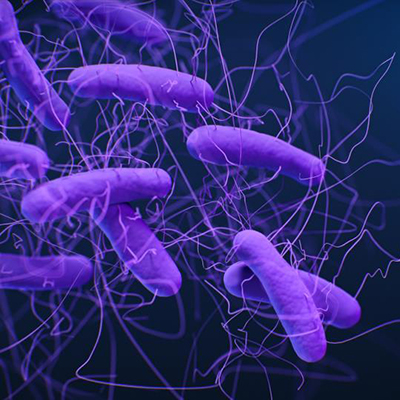November 17, 2022 -- An antibiotic-resistant, opportunistic pathogen works with Clostridioides difficile to reshape and enhance the metabolic environment in the gut so that C. difficile can thrive, according to a study from the Children's Hospital of Philadelphia (CHOP).
Approximately 1 in 6 patients infected with C. difficile will be reinfected within two months, but why? CHOP researchers learned it's because of Enterococcus (Nature, November 16, 2022). The two pathogenic organisms take advantage of each other.
The team analyzed stool samples from 54 pediatric patients infected with C. difficile and learned these patients had high levels of Enterococcus and a positive correlation between enterococcal and C. difficile burdens. Using both in vitro and in vivo experimental models, they discovered enterococci increase C. difficile virulence by enhancing its production of toxins.
Using data ranging from transcriptomics to metabolomics, the CHOP team found enterococci reshape the gut environment so that it's more conducive for C. difficile to thrive.
Enterococci use arginine for energy and export ornithine, especially during C. difficile infection. Also, arginine depletion plays a key role in C. difficile virulence, they added. Human samples confirmed these findings.
Future research should explore targeting enterococcal metabolism and the resulting amino acid alteration in the gut as a way of undercutting the pathogenesis of C. difficile, according to the authors.
Copyright © 2022 scienceboard.net







